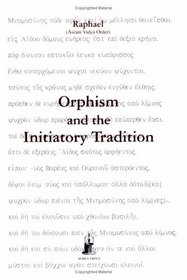Search -
Orphism and the Initiatory Tradition
Orphism and the Initiatory Tradition
Author:
Dionysus! This name has been on the lips of thousands of people in different places since the earliest of times. And if he is still written about, it means that He is present. Herodotus tells us that he originated in Egypt. Other writers have suggested Thrace, Lydia or Phrygia; others still indicate Crete where tablets dating back t... more »
Author:
Dionysus! This name has been on the lips of thousands of people in different places since the earliest of times. And if he is still written about, it means that He is present. Herodotus tells us that he originated in Egypt. Other writers have suggested Thrace, Lydia or Phrygia; others still indicate Crete where tablets dating back t... more »
ISBN-13: 9781931406055
ISBN-10: 1931406057
Publication Date: 4/8/2003
Pages: 128
Rating: 1
ISBN-10: 1931406057
Publication Date: 4/8/2003
Pages: 128
Rating: 1
4 stars, based on 1 rating
Publisher: The Aurea Vidya Foundation, Inc.
Book Type: Paperback
Members Wishing: 0
Reviews: Amazon | Write a Review
Book Type: Paperback
Members Wishing: 0
Reviews: Amazon | Write a Review




